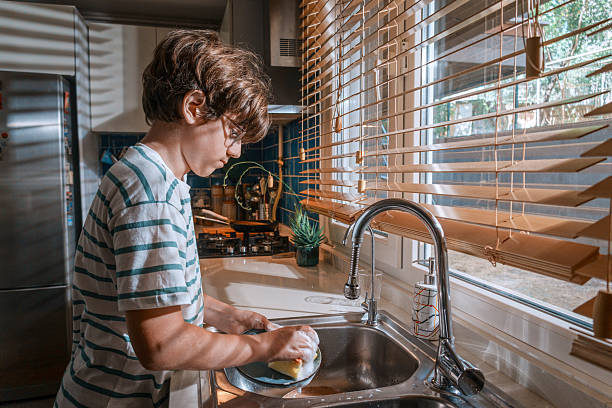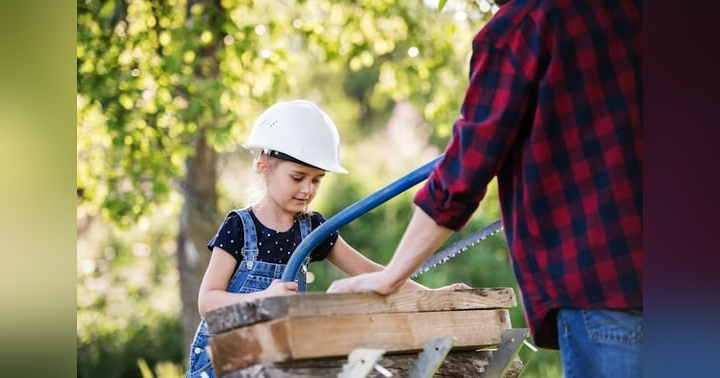Raising Responsible Teens Without Nagging

Have you ever found yourself repeating the same reminder for the tenth time—“Please unload the dishwasher!”—only to be met with blank stares or half-hearted sighs? You’re not alone. Every parent wants to know the secret to raising responsible teens — kids who take initiative, help around the house, and actually want to contribute. In our latest podcast episode, “The Secret to Getting Your Teen to Do Chores Without Nagging”, Greg and I share the surprising strategy that’s worked for all seven of our children (yes, even through those teen years). It’s the same approach we dive into in How We Raised 7 Well-Adjusted Kids—Without Yelling, Tantrums, Punishments or Power Struggles, and it starts with one simple shift: seeing responsibility as something that’s taught through trust, not demanded through control.
The Hard Truth About Chores (and Why Nagging Never Works)
If you’re tired of feeling like a broken record, here’s the truth—nagging doesn’t work because it’s reactive.
It’s like trying to water a garden after the plants have already wilted.
When teens roll their eyes, drag their feet, or “forget” their chores, it’s not because they’re incapable.
It’s because they haven’t yet been trained to connect effort with reward, privilege with responsibility.
As Greg often says, “You don’t rise to the level of your expectations—you fall to the level of your training.”
Our job as parents isn’t to get louder or more frustrated; it’s to get more strategic.
The Power of Privilege-Based Accountability
When our 13-year-old hit that “I’d rather do nothing” stage, we knew we needed a better system.
So we introduced what I call privilege-based accountability—a simple but powerful principle that connects privileges (like screen time, audiobooks, or hanging out with friends) to personal responsibility.
Here’s how it looked in real life.
Our son had lost his device privileges after sneaking games, so he went on a “device fast.”
But when we started a big family project, we offered him a deal: he could earn back 15-minute audiobook sessions by helping with chores.
That small shift changed everything.
Suddenly, he wasn’t avoiding work—he was asking for it.
From sun-up to bedtime, he’d look for ways to contribute so he could earn another 15 minutes.
What started as an external motivation began transforming into genuine initiative.
Why This Works (and Why It’s Not Manipulation)
Some parents worry this sounds like bribery—but it’s not.
Bribery says, “Do this or else.” Privilege-based accountability says, “Here’s how the world works.”
In the real world, privileges come after effort.
You earn your paycheck after you work.
You enjoy free time after you fulfill your responsibilities.
When our teens experience that natural cause-and-effect rhythm early, they learn that freedom follows responsibility.
And it’s not just about chores.
It’s about shaping character.
Our teens are learning that when they show up, follow through, and contribute—they gain trust, freedom, and opportunities.
Training, Not Controlling
Greg often reminds me, “Parenting is leadership, not management.” We’re not trying to control every behavior; we’re training for competence and character.
So yes, our teens have systems and expectations.
But they also have choices.
They understand that technology is a tool, not a toy—and that privileges are earned through responsible behavior.
The beauty of this approach is that it shifts the energy in your home.
Instead of power struggles, you have collaboration.
Instead of nagging, you have natural consequences.
Instead of resentment, you have respect.
From Extrinsic to Intrinsic Motivation
In the beginning, our son worked hard for the audiobook.
But within weeks, he began working for himself.
He liked how it felt to be productive.
He enjoyed the satisfaction of seeing a clean kitchen or hearing us say, “Thank you, you’ve been so responsible.”
That’s the moment every parent dreams of—the shift from external motivation to internal drive.
And it doesn’t happen through lectures or punishments.
It happens through connection, consistency, and calm leadership.
Modeling the Life We Want Them to Live
Kids rarely do what we say—but they always do what we see.
Our teens work hard because they’ve watched us do it.
They’ve seen Greg and me balancing our dreams, family, and work, showing up every day, doing what needs to be done—even when we don’t “feel like it.”
When we model purpose, consistency, and discipline, our kids begin to mirror it.
Over time, raising responsible teens stops feeling like a battle—and starts looking like teamwork.
The Long Game: Raising Capable, Confident Adults
Responsibility isn’t a one-time lesson.
It’s a lifestyle.
It’s about preparing our teens not just to clean their rooms—but to own their lives.
When we connect chores, privileges, and accountability with love and strategy, we’re not just raising kids who help out at home.
We’re raising adults who know how to work, contribute, and create an extraordinary life of their own.
So take a breath.
You don’t need to nag.
You just need to lead—calmly, clearly, and consistently.
Because raising responsible teens starts with you.
RESOURCES:
Let us help you in your extraordinary family life journey.
- How We Raised 7 Well-Adjusted Kids - Without Yelling, Tantrums, Punishments or Power Struggles (+ get THE CHECKLIST: Things We Do Every Day to Raise Well-Adjusted Kids)
- Rachel’s Must-Read Booklist for Well-Read Moms
- Greg's Recommended Reading List for Parents & Youth
- Join the 12-Week Habits Challenge for parents of kids 13+
- Don’t miss out on the Extraordinary Parent Mentoring Method class!
- Get Greg’s NEW Formidable Family Man BOOK!
- Get Rachel's Family Systems & Charts
- Get Rachel’s Extraordinary Family Life Planner
- Follow us on Instagram: @worldschoolfamily or @greg.denning
- Gather with us at the World School Family (Beach & Farm) Resort in Portugal













